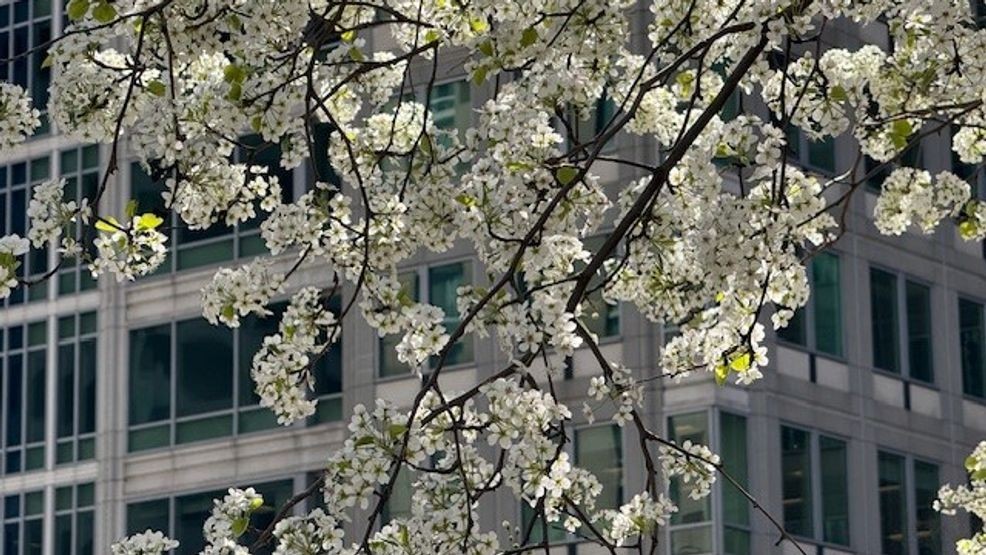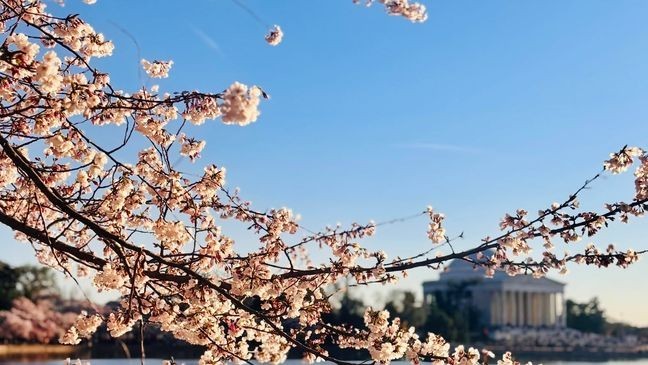Don't blame the cherry blossom trees for your seasonal allergies, expert says
WASHINGTON (7News) — Allergy season is upon us, and if you're dealing with a runny nose and itchy eyes, you're probably allergic to tree pollen, as that's the biggest culprit in March and April.
7News Health and Wellness Reporter Victoria Sanchez spoke with an allergist about the best over-the-counter medications to ease your symptoms this spring.
About 81 million American adults and children have seasonal allergies.
SEE ALSO | Mulch Master's Medicine: Cherry blossom trees turned into 'wood chip therapy'
If you went down to the National Mall this weekend for the kite festival or to see the cherry blossom trees, don't blame Yoshino's for your symptoms. Bees do most of the pollinating for the cherry blossoms -- unlike birch, oak, maple, and elm trees that use the wind to spread pollen far and wide, including your eyes and nose.
“If you can choose only one medicine, usually intranasal steroid sprays are the best – such as Flonase or Nasacort. Then the second medicine to get started on might be a nasal antihistamine spray like Astepro. Then from there, you can add on an allergy pill like Zyrtec, Claritin or Allegra," suggested Dr. Troy Baker, allergist at Kaiser Permanente Mid-Atlantic.
“So, all three you’re suggesting?” asked Sanchez.
“Yes, and even if eyes are a predominant symptom, Pataday 0.7 percent is probably one of the strongest we have over the counter," he said.
Three or four different daily medications sounded like a lot to Sanchez, so she asked Dr. Baker about allergy shots.
"Allergy shots will generally make people feel about 80 percent better, but they require the most effort," he said.
Patients need to come into the doctor's office every week for six months, then once a month for three to five years for the injections.
"It will give you sustained benefit even when you quit your shots three to five years later," Dr. Baker said. "It's kind of like braces, where once you take your braces off, you still have great-looking teeth. The allergy shots give you prolonged benefit from your allergies."
Non-medical allergy prevention, according to the Asthma and Allergy Foundation of America:
- Limit your outdoor activities when pollen counts are high
- Keep windows closed, if possible, during pollen season or peak pollen times
- Use central air conditioning or air cleaners with filters
- Cover your hair, nose, mouth, and eyes while outside
- Remove your shoes before entering your home
- Shower daily before going to bed
- Clean bedding, floors, and fabric furniture once a week
- Clean blinds, curtains, and washable rugs once a month
- Limit close contact with pets that spend a lot of time outdoors
- Wipe furry animals off when they come inside or bathe them weekly (if appropriate)
- Change and wash clothes worn during outdoor activities
- Dry your clothes in a clothes dryer or on an indoor rack, not on an outdoor line
- Watch pollen counts and forecasts


